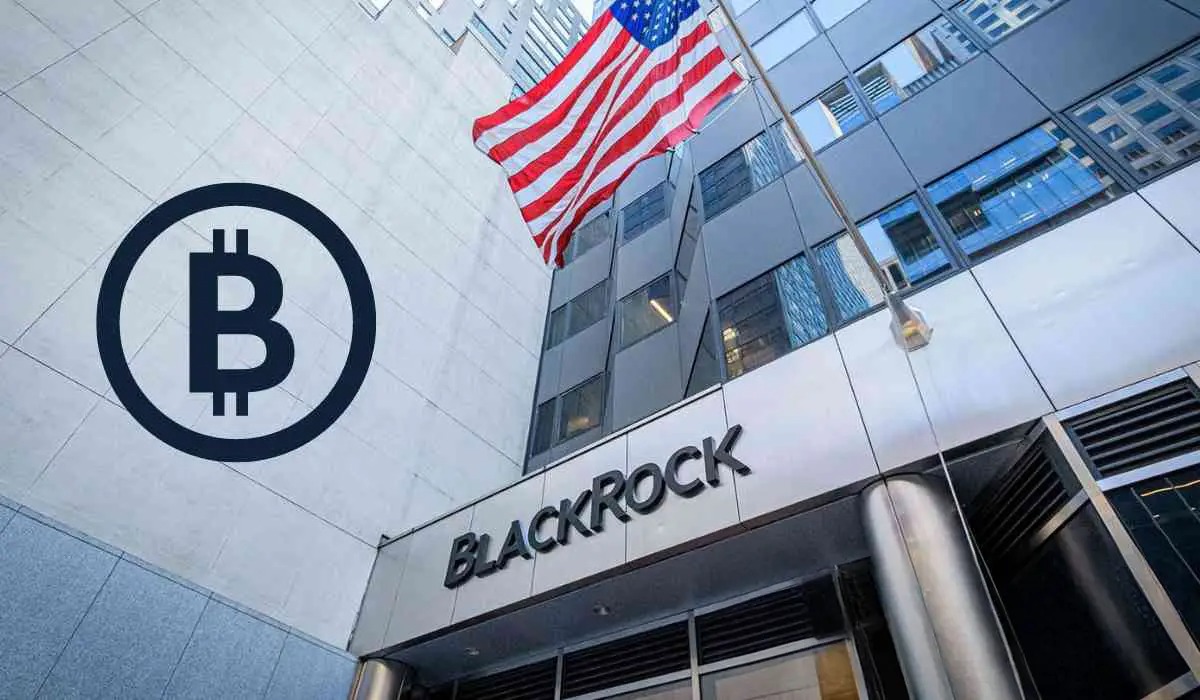BlackRock sparks debate over Bitcoin’s 21 million cap, raising concerns among investors about Bitcoin’s fixed supply and its deflationary nature. One of the top asset management companies in the world, BlackRock, has made some comments that have sparked controversy in the cryptocurrency community, especially about Bitcoin’s 21 million maximum. Discussions over the fundamentals of Bitcoin and its long-term stability have surged in response to BlackRock’s declaration that there is “no guarantee” that the cryptocurrency’s 21 million coin maximum supply won’t alter. The importance of this remark, its ramifications for Bitcoin, and why the debate is crucial for both investors and enthusiasts will all be covered in this essay.
Bitcoin Cap Controversy
BlackRock, which manages trillions, has constantly monitored Bitcoin developments. Since BlackRock has a big impact on financial markets, its opinions on Bitcoin’s supply limit are relevant. Bitcoin’s 21 million ceiling has long been a distinguishing characteristic, creating a sense of scarcity like gold. The firm’s warning comment questions this supply limit’s future firmness. Bitcoin’s programming prevents the production of more than 21 million coins, but BlackRock’s pessimism suggests a shift in thinking regarding its structure. These comments have sparked controversy about whether Bitcoin’s supply limit is fixed or can be changed.
Bitcoin’s 21 Million Debate
The problem is Bitcoin’s 21 million-coin cap. Bitcoin’s pseudonymous developer, Satoshi Nakamoto, hard-coded this constraint to replicate precious metal scarcity and safeguard Bitcoin from inflation. Bitcoin guards against fiat currency depreciation as a deflationary asset. Investors see Bitcoin’s 21 million cap as an inflation hedge and store of wealth. Those concerned about central banks printing money and depreciating currencies enjoy the idea that Bitcoins will never exceed 21 million. BlackRock’s remark raises the question of whether changing this cap will undermine Bitcoin’s identity. Could economic or technical factors impact Bitcoin’s 21 million coin cap? Bitcoin supporters and detractors have speculated and argued.

Bitcoin Cap and Governance
BlackRock’s stance has sparked debate because of its global reach. BlackRock has questioned Bitcoin’s 21 million cap, citing economic pressures, technical advances, and governance decisions. Increased institutional interest in Bitcoin may have motivated BlackRock to emphasize this issue. Bitcoin’s design may be forced to match the financial system when large financial institutions and governments invest in cryptocurrencies. Modifying supply caps may increase global economic response flexibility. BlackRock also questioned Bitcoin’s rigorous code. Bitcoin’s protocol is decentralized, but supply and structural modifications require network permission. This may be controversial and difficult, resulting in coin splits or regulatory reforms.
Bitcoin’s Decentralized Protocol
Bitcoin has no central authority. By consensus, miners, developers, and node management set Bitcoin’s protocol. Autonomous governance has shielded Bitcoin from outside meddling. The popularity and institutional acceptance of Bitcoin may boost the desire to change its key principles, including the 21 million restrictions. This modification requires network consent. A soft or hard fork may be advocated if a large part of Bitcoin’s community and miners agree to change the supply cap. Altering Bitcoin’s supply cap is difficult yet possible. Many Bitcoiners value fixed supply. A 21 million barrier modification might devalue Bitcoin’s rare, deflationary value. Much of the Bitcoin community opposes supply restriction modifications ideologically.
BlackRock’s Bitcoin Influence
BlackRock’s global asset management affects Bitcoin investors. The firm’s Bitcoin supply restriction judgments encompass technical factors and market estimates of its long-term stability. BlackRock questioned Bitcoin’s 21 million cap, lowering its value. Bitcoin enthusiasts have long said its supply limitation is crucial, but BlackRock’s pessimism may change investors’ opinions. Institutional investors may not want to own Bitcoin as a store of wealth or inflation hedge due to its fluctuating supply. Note that BlackRock has increased its Bitcoin exposure using Bitcoin futures. This makes BlackRock’s statements more significant since they may signify Bitcoin’s market progression. The company has a big impact, but Bitcoin’s 21 million cap depends on the community’s acceptance of such a change.
Bitcoin’s 21 Million Split
Bitcoin’s supply cap change divided enthusiasts. It may be required to stabilize a fast-changing market, but some worry it would undermine Bitcoin’s values. Bitcoin activists consider the 21 million limit a non-negotiable feature that distinguishes it from traditional currencies. Popularity will increase Bitcoin’s supply cap argument. Advocates of Bitcoin’s fixed supply say any modification will weaken its inflation cushion. Those who challenge the 21 million restrictions think Bitcoin might adapt to a worldwide financial system. The debate over increasing Bitcoin’s production ceiling poses major financial and economic considerations. The Bitcoin network and users will decide whether to modify Bitcoin’s 21 million limit, notwithstanding BlackRock’s statements.
Also Read: Strategic Bitcoin Reserves and U.S. Financial Sovereignty
Conclusion
BlackRock’s comments on Bitcoin’s 21 million ceiling triggered a heated debate about its future. The remark suggests Bitcoin’s governance structure may alter and its supply limit may be flexible. The conversation highlights the challenges of maintaining a decentralized asset, even though changing Bitcoin’s supply is unlikely. As Bitcoin evolves, its supply limit will undoubtedly be debated. For now, Bitcoin’s 21 million cap defines it, and it’s unlikely to change. Whether Bitcoin’s supply will ever alter is unknown, but BlackRock’s statements triggered a crucial discourse.










